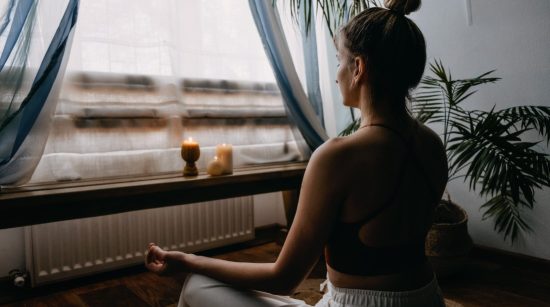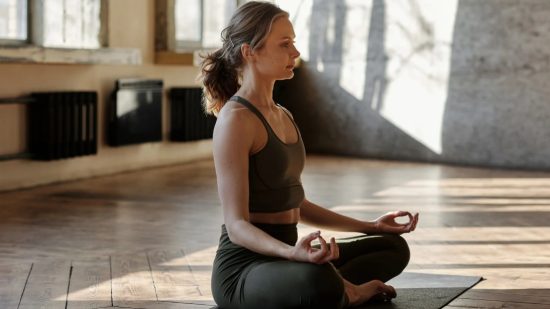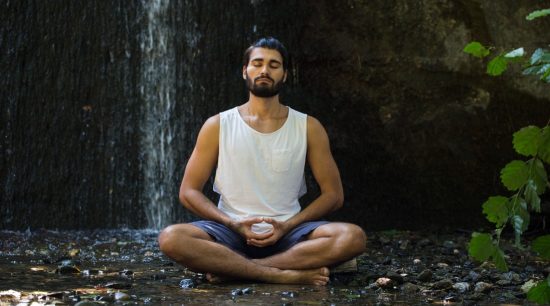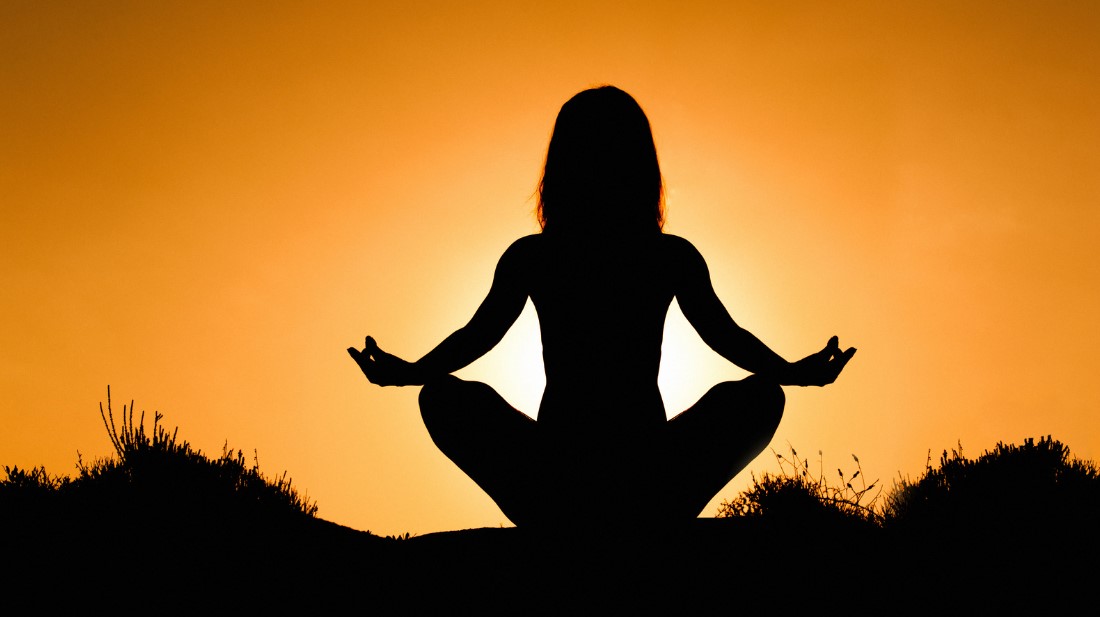In today’s fast-paced, always-on world, finding moments of calm and clarity can seem impossible. The constant barrage of notifications and distractions can leave us feeling overwhelmed and disconnected from ourselves. That’s where meditation comes in – a powerful practice for centuries to bring peace, focus, and balance into our lives.
Meditation is not just reserved for monks or spiritual gurus; it is a practice anyone can incorporate into their daily routine. Meditation offers countless benefits, whether seeking relief from stress, improved mental clarity, or simply a way to connect with your inner self.
This article will explore why meditation is so important in our lives and delve into its incredible advantages. But more importantly, we will guide you through how to meditate in seven easy steps. So grab a cushion or find a comfortable spot – let’s embark on this transformative journey within ourselves!
Why Meditation is So Important in Our Lives?

In today’s fast-paced world, filled with stress and distractions, meditation offers a powerful tool for finding inner peace and balance. By sitting quietly and focusing our minds, we can cultivate mindfulness, reduce anxiety, improve mental clarity, and enhance overall well-being. Incorporating meditation into our daily routine can help us navigate life’s challenges more easily and find a sense of calm amidst the chaos.
Benefits in Meditation
- It helps reduce stress and anxiety
- Improves focus and concentration
- Enhances self-awareness
- Promotes emotional balance
- Boosts creativity and problem-solving abilities
- Strengthens the immune system
- Increases happiness and overall life satisfaction.
- Incorporating meditation into your daily routine can lead to profound positive changes in your mind and body.
How to Meditate? – 7 Easy Steps
- Set aside some time: Dedicate a specific time for meditation, preferably in the morning or evening.
- Find a comfortable place: Choose a quiet and peaceful spot to sit comfortably without distractions.
- Bring mindfulness into meditation: Focus on your breath and be fully present in the moment to cultivate awareness.
- Start your meditation: Close your eyes gently and begin with deep inhales and exhales, letting go of any tension or stress.
- The challenge of focusing the mind: Acknowledge thoughts that arise but gently redirect your attention back to your breath or chosen focus point.
- Get the hang of meditation: Practice regularly, starting with shorter sessions and gradually increasing duration as you become more comfortable.
- Bring your meditation to a close: Slowly bring yourself back to the present moment, opening your eyes and reflecting on how you feel after meditating.
1. Set Aside Some Time

Setting aside some time for meditation is crucial to reap its benefits fully. Find a peaceful moment in your day, whether in the morning or before bed. By dedicating this time solely to your practice, you can create a consistent routine that allows you to focus and relax without distractions. Prioritizing this self-care ritual will help bring balance and clarity into your life.
2. Find a Comfortable Place
Finding a comfortable place is crucial for a successful meditation session. Pick a spot where you can relax and sit or lie down without being disturbed. It could be a quiet corner of your home, a peaceful park, or even your bedroom. Create an environment that promotes relaxation and allows you to focus inwardly.
3. Bring Mindfulness Into Meditation
Bringing mindfulness into meditation is a crucial step in cultivating a deeper sense of awareness. One must consciously focus on the here and now to practise mindfulness while avoiding bias or attachment. By focusing on your breath and bodily sensations or simply observing your thoughts and emotions as they arise, you can enhance your ability to stay present during meditation. This practice allows for greater self-reflection and promotes overall well-being.
4. Start Your Meditation

Now that you’ve set aside time and found a comfortable place for meditation, it’s time to begin. Find a posture that allows you to be alert yet relaxed, whether sitting on a cushion or in a chair. Close your eyes or keep them slightly open, whatever feels right for you. Take a moment to settle into this position before shifting your focus inward and letting go of any tension in the body.
5. The Challenge of Focusing the Mind
Focusing on the mind during meditation can be a real challenge. As thoughts and distractions arise, it’s easy to lose our concentration. However, this is where the true practice of meditation begins. The key is gently bringing your attention to your chosen focal point whenever you notice your mind wandering off. It takes time and patience, but with consistent effort, you’ll gradually develop a stronger ability to focus and maintain mental clarity.
6. Get the Hang of Meditation
Once you’ve found your rhythm with meditation, it’s time to get the hang of it. Remember, meditation is a practice that requires patience and persistence. Start by focusing on your breath, gently bringing your attention back whenever thoughts arise. Don’t be discouraged if your mind wanders; acknowledge it and return to the present moment. With regular practice, you’ll gradually find it easier to stay centred and calm during meditation sessions. Keep at it!
7. Bring Your Meditation to a Close

Now that you have dedicated time to your meditation practice, bringing it to a gentle close is important. Slowly bring your awareness back to the present moment by taking a few deep breaths and gradually opening your eyes. Take a moment to thank yourself for taking this time for self-care, and allow the peaceful state of mind you’ve cultivated through meditation to carry with you throughout the rest of your day. Remember, consistency is key in reaping the full benefits of meditation. Keep up your practice and nourish your mind, body, and spirit.
Conclusion
Embarking on the meditation journey unlocks profound tranquillity. Finding the resonant technique is key—mindfulness, focused breathing, or guided imagery. Patience is crucial; it’s a continuous journey of self-discovery. These tools create stillness, clarity, and inner peace amid life’s hustle. Whether focusing on breath or mindfulness, meditation transforms your relationship with the mind. Embrace the newfound calmness and self-awareness, paving the way for a more centred and balanced existence.

